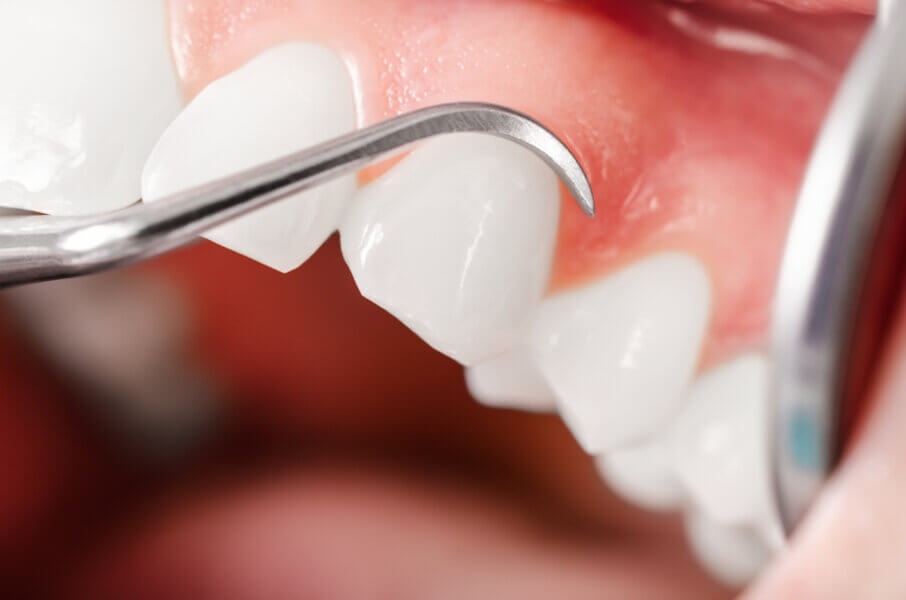Gingivitis, a common and mild form of gum disease (periodontal disease), causes irritation, redness, and swelling (inflammation) of your gingiva, the part of your gum around the base of your teeth. Understanding the causes of gingivitis can help in its prevention and treatment, ensuring better oral health.
- Plaque Accumulation: The Primary Culprit: The most common cause of gingivitis is the accumulation of bacterial plaque between and around the teeth. Plaque is a sticky, colorless film composed primarily of bacteria and food particles. It constantly forms on our teeth. If not removed through daily brushing and flossing, plaque can build up and the bacteria in it can infect not only your gums and teeth but also the gum tissue and the bone that support the teeth.
- Poor Oral Hygiene: A Gateway to Gum Disease: Poor oral hygiene is a significant contributor to gingivitis. Neglecting regular brushing and flossing allows plaque to not only form but also harden into tartar (calculus), a much harder substance that forms at the base of the teeth. Tartar makes plaque more difficult to remove and creates a protective shield for bacteria, leading to more severe gum disease.
- Smoking and Tobacco Use: Aggravating Factors: Smoking or chewing tobacco has been shown to significantly increase the risk of gingivitis. Tobacco use affects the normal function of gum tissue cells and makes your mouth more vulnerable to infections like gingivitis. Moreover, smoking can impair blood flow to the gums, which can affect wound healing and make the treatment of gingivitis less effective.
- Hormonal Changes: Increasing Sensitivity: Hormonal changes in the body can also make gums more sensitive and vulnerable to gingivitis. These changes can occur during puberty, menstruation, pregnancy, and menopause. The increase in hormones can cause the blood vessels in the gums to be more susceptible to bacterial and chemical attack, leading to inflammation.
- Medications: Unintended Side Effects: Certain medications can affect oral health and increase the risk of gingivitis. Some drugs, such as anticonvulsants, calcium channel blockers, and immunosuppressants, can cause abnormal growth of gum tissue, making it difficult to maintain oral hygiene. Additionally, medications that cause dry mouth can decrease saliva flow, which helps in cleaning teeth and gums, thus increasing the risk of gum disease.
- Diseases: Contributing Illnesses: Certain diseases, such as diabetes, cancer, and HIV, affect the body’s immune system and can impact the health of gums. Diabetic patients are at a higher risk for developing infections, including gingivitis, due to the reduced ability to fight bacteria. Other systemic diseases that affect the body’s immune system may also contribute to a condition called periodontitis, a serious gum infection.
- Nutritional Deficiencies: Impact on Gum Health: A diet lacking in important nutrients can impair the body’s immune system and make it harder for the body to fight off infection, including gingivitis. Vitamin C deficiency, in particular, is known to be linked with gum disease. A balanced diet rich in vitamins and minerals can help in maintaining healthy gums.
- Genetic Factors: Inherited Risks: Research suggests that genetics may play a role in the susceptibility to gum disease. Some individuals may be more prone to severe gum disease than others, regardless of how well they care for their teeth and gums.
Prevention and Treatment
The primary method of preventing and treating gingivitis is effective oral hygiene. This includes regular brushing, flossing, and using mouthwash, along with professional dental cleanings. In cases where gingivitis has progressed, more extensive treatment may be necessary.
In conclusion, understanding the various causes of gingivitis and tartar is crucial for prevention and treatment. While plaque accumulation is the primary cause, factors like poor oral hygiene, smoking, hormonal changes, medications, certain diseases, nutritional deficiencies, and genetics also play a significant role. Regular dental check-ups and maintaining good oral hygiene can help prevent gingivitis and ensure good oral health.











